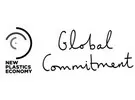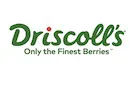Yesterday Driscoll’s joined The New Plastics Economy Global Commitment to help advance its pledge to prioritize sustainable packaging solutions that protect fresh berries while minimizing an environmental impact.
The New Plastics Economy Global Commitment is led by the Ellen MacArthur Foundation in collaboration with the UN Environment Programme, and unites more than 500 signatories behind a common vision of a circular economy for plastic, in which plastics stay in the economy and out of the environment.
 “Better berries deserve better packaging. We have the opportunity to collaborate with many brands throughout the journey to sustainable packaging to achieve scalable and economically viable solutions,” said J. Miles Reiter, Driscoll’s chairman and CEO. “Signing the Global Commitment elevates our existing work by holding us to a higher standard, and serves as a commitment to transparency as well as annual reporting to accelerate the transition to a circular economy for plastic.”
“Better berries deserve better packaging. We have the opportunity to collaborate with many brands throughout the journey to sustainable packaging to achieve scalable and economically viable solutions,” said J. Miles Reiter, Driscoll’s chairman and CEO. “Signing the Global Commitment elevates our existing work by holding us to a higher standard, and serves as a commitment to transparency as well as annual reporting to accelerate the transition to a circular economy for plastic.”
To help realize the New Plastics Economy Global Commitment, all business and government signatories commit to a set of ambitious targets. As a signatory, by 2025 Driscoll’s will minimize the impact of plastic packaging on the environment by committing to the following:
1. Take action to eliminate problematic or unnecessary packaging
- Conduct a packaging analysis of all inbound and outbound plastic
- Optimize clamshells to reduce unnecessary plastic
- Transition to paper packaging in Driscoll’s European markets where infrastructure allows
2. Take action to move from single-use towards reuse models where relevant
- Replace single-use shipping containers with reusable plastic containers for receiving packaging
3. Take action to achieve 100 percent of plastic packaging to be reusable, recyclable or compostable
- Transition to washable Biaxially-Oriented Polypropylene (BOPP) labels and recyclable pads
- Include How2Recycle label on all clamshells in the U.S. and Canada to increase proper disposal of packaging
- In Europe, the Middle East and Africa, Driscoll’s will focus on transitioning to paper packaging where feasible and revert the company’s two-piece packaging model to a paper pack with heat seal
4. Set an ambitious 2025 recycled content target across all plastic packaging used
- Driscoll’s clamshells currently contain more than 50 percent recycled Polyethylene Terephthalate (PET), which mainly comes from recycled bottles. The company will focus on increasing the amount of PET content that comes from recycled clamshells to promote a more closed-loop system
By signing the Global Commitment, Driscoll’s has committed to broad and significant action towards a more sustainable product offering.
“The New Plastics Economy Global Commitment unites businesses, governments and others behind a clear vision of a circular economy for plastic. We are pleased Driscoll’s is joining us, by setting concrete 2025 targets,” says Sander Defruyt, Lead of the New Plastics Economy initiative at the Ellen MacArthur Foundation. “Our vision is for a world where plastic never becomes waste or pollution. It will be a challenging journey, but by coming together we can eliminate the plastics we don’t need and innovate, so the plastics we do need can be safely and easily circulated – keeping them in the economy and out of the environment.”
Delivering berries to consumers requires packaging to be a critical component to the success of Driscoll’s. In early 2020, Driscoll’s and others across the fresh berry industry made a joint pledge to achieve 100 percent recycle-ready packaging by 2025. Since then, Driscoll’s has taken on a series of packaging initiatives delivering positive results. As of March 2021, Driscoll’s has achieved 10 percent recycled content from post-consumer clamshells and reduced its packaging footprint by 366,000 kilograms of PET.
In addition, Driscoll’s put its commitment into action through goal-setting and developing new collaborations which included joining the Sustainable Packaging Coalition in 2019. This includes adopting the inclusion of the How2Recycle label on clamshells, a label that helps brands and consumers understand the material makeup of its packaging and how to properly dispose of it. How2Recycle improves the reliability and transparency of recyclability claims and helps ensure that more plastic is recycled.
 For more information:
For more information:
Driscoll’s
www.driscolls.com
